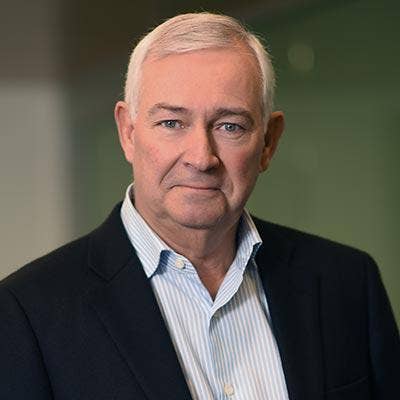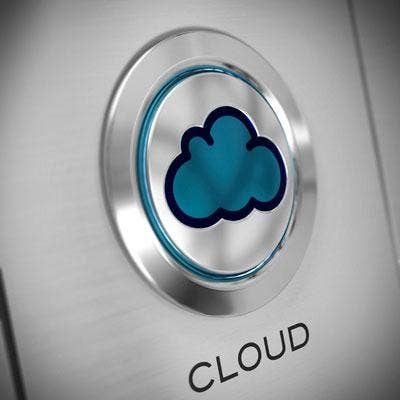CRN Exclusive: Ingram Micro CEO Monie On Distribution, Market Changes, And The Joy Of Being Private

Distribution: Alive And Well In A Sea Of Change
Consolidation, top executive changes, and competition with the cloud are all leaving their marks on IT distribution in 2018.
One major constant, however, is Alain Monie, who since 2012 has served as CEO of Ingram Micro, the IT industry's largest distributor. Monie has steered Ingram Micro during a time of growth that included the company's acquisition of over 20 distribution and services companies worldwide.
Monie in 2016 led Ingram Micro through its own acquisition by China-based HNA Group's Tianjin Tianhai Investment. That move, which made Ingram Micro a private company, provided it the flexibility to re-organize for growth away from the scrutiny of Wall Street, Monie told CRN.
For a look at how Ingram Micro and distribution as a whole are doing, take a look at our slideshow for an excerpt of CRN's conversation with Monie.

The cloud is a big part of Ingram Micro's business going forward, yet it is also a big potential competitor in terms of how customers purchase products and find information. How do you balance the two?
I see two things. One is, the market is growing extremely fast, and there'll be more than one winner. We just need to be one of the winners. We don't need to be the winner. Competitors will take pieces of the act, but we're going to take our piece.
Two, complexity is really becoming an advantage for us. The platforms that AWS and Azure [provide] are tremendous. We're not going to fight on that front. We're going to be complementing what we do with them. [Look at our new CloudBlue platform with Microsoft.] There are things like that where you see we are more collaborating than competing. There will be coopetition. There'll be several winners. We're OK. This market is huge.

How do you see the competitive environment for distribution today in North America?
I would say it's stable. There are some pockets of aggressiveness sometimes. That's just temporary. I don't think it's structural or endemic. You fight for a deal, you fight for this or that, you fight for market share here and there. But all in all, I see it very stable.
I think we are also spending a lot of time in developing our companies in different areas. You look at Synnex developing their BPO business, and their strategy in that direction, and in [its hyperscale data center technology developer] Hyve. We're investing a lot in cloud and e-commerce enablement. Tech Data has invested in advanced solutions with Avnet. They're pretty busy, I'm sure, still integrating that.
So I think we have our own other playgrounds that we're really focusing on. But for the core of the business, I would say it's a very stable and healthy distribution landscape.

Do you expect this competitive environment to continue? Or are there things on the horizon that could change the environment?
I think we are on the way to differentiating, especially as the technology is now differentiating itself. Through the cloud, IoT, all kinds of technology, IT is now pervasive everywhere. It's not confined to laptops, storage, servers. It goes to the edge now, and all the small sensors now have their own intelligence, all have connectivity, all become gateways that have to access a network. So everything is becoming IT. And I see the health of the IT market very, very strong because of that.

What do channel partners need to do to take advantage of that?
That's what we're trying to do at settings like Ingram Micro Cloud Summit or Ingram ONE or other events. We have always been active in educating our partners and giving them the tools for them to transform themselves. We see our role as enabling them. And when I say enable them, it's not just a word. It's giving them the tools, the understanding, the training, the platforms they need.
For instance, take an IoT workshop. We believe some resellers have a set of customers that would be very interested in getting there. Those who are in retail or other areas where IoT has become very important. We can enable them to become really strong in selling IoT solutions, which today they're not. And so, proposing the solutions, the tools, the training for them to become successful is really our principal role to get our resellers to be part of our ecosystem and prefer to work with us.

Is there still growth in the traditional pick-pack-ship role of distribution, or is that a role that over time will fade away?
I think there's still a lot to be done with pick-pack-ship. Now, how it's done might evolve. We're looking at robotic solutions. We're looking at platforms that connect other peoples' warehouses to ours so that you don't have to necessarily own your own warehouse with your own inventory. As long as you are able to connect to where the stuff is, it becomes more productive and optimal. And that's where we're investing in, for instance, with our Shipwire platform which connects the user with where the inventory is, and then allows the transactions to happen.
We're still going to have to move stuff from one place to another. Not everything is going to be virtual. The device needs to be taken from where it is manufactured to the user. That's what we're investing in. Because somehow, that whole activity related to e-commerce enablement needs to happen.

Do you have an example of how Ingram Micro is changing how it is handling physical goods?
We made an acquisition, a company called Docdata, in Europe. They manage the warehouses for the large e-commerce players. [In Europe], it's not all IT. It's clothes. It's shoes. And that business is growing very fast for us. We want to offer an alternative to fulfillment by Amazon.

Ingram Micro is a private company. So why did it report its fiscal first quarter 2018 financials?
The way we operate, we count on financing in a fairly important way. We have lenders that are interested in knowing how we are doing. And so it's important to us. We also have bonds out there. So it's important to communicate with those stakeholders how we're doing.

How do you explain the growth in revenue and profit? What's changed over the last year?
We had very solid growth last year. But that came after the year before that when we didn't have the growth we'd expected. And so, in a private environment, and with the ability to be, I would say, a little more intent in your strategy than when you have quarterly [financial] questions, we were able to rearrange our teams towards a growth strategy after the acquisition. In 2016, we were kind of distracted with all the stuff going on because [the acquisition process] lasted for the whole year. We lost market share in 2016. So we decided we were going to regain our relevance, because it's important for vendors and customers to have a certain level of relevance. And if sometimes you have to choose between good deals and bad deals, OK, that's fine. But overall, you have to keep your balance.
How has Ingram Micro changed in the two years since it was acquired by China-based HNA Group's Tianjin Tianhai Investment?
We rearranged our teams towards growth. We gave them the tools to do that, which was not so much around pricing as it more around the flexibility you have when you're in a private environment and you don't have to show at the end of the quarter that your working capital is here, and then two days later it is where you want it to be. It's fine. But those two days can make a huge difference to your partners.
And so, having that flexibility allowed us to really recover our strength in the market, and that's what we did. So we were deliberate, and quite successful in that.

You talked about flexibility. What about going private increases your flexibility in doing business?
I'll give you an example. We started our cloud investments really seriously five, six years ago when we started making investments in buying companies and putting together a development group that was costing us money, and the business was still not coming. When you're in a public environment, every quarter you have to explain the composition of your earnings. There is a point where you can't continue distracting your earnings into future stuff when investors want their dividends, their money, every quarter.
When you're in a private environment, you can have a discussion with your shareholders, saying this is what we're aiming at in three years, between now and then this is what we need to do. … For a business like ours, that is based on a very, very tight margin, anything you can do to have that freedom is really good.

What do you think is behind rumors that HNA Group might have to sell Ingram Micro, or that HNA might ask Ingram Micro to apply for new financing?
Bad news always sells better than good news. I shouldn't tell you that.
HNA, as you know, has gone into a very aggressive acquisition mode for a few years. They did that with a certain strategy as far as leverage. Clearly, there was a point where they probably went a little bit too far as far as leveraging the company versus what they bought and being able through the cashflows to repay the debt as per the agreements they had when they were financed. And so I think they realized at a point in time that they needed to sell assets in order to make sure that [its business] was sustainable for the future.

Could Ingram Micro one day be sold?
I can tell you, there has never been any moment where we have had any discussion about selling Ingram. You never know. One day that could happen. But at this stage, you can see the assets that the HNA Group is selling are non-core in real estate and other areas. I think that we represent the technology interest that they have. We represent a size and a global presence that they're very interested in. And we have a framework within which we operate that is very independent from HNA. We have what we call our 'ring fencing' that really allows us to continue our development without having to look at all of these political [issues]. We feel very safe where we are today.

The CEOs of two of your biggest competitors, Synnex's Kevin Murai and Tech Data's Bob Dutkowsky, this year announced plans to step away from the day-to-day executive roles. Is there anything going on that would cause that?
I have no idea. I know them very well. I'm sure they're enjoying life, and it was a choice that they made. Both of them have been very successful in what they have done. All I can assume is that this was a good time for them to make this choice. I have a lot of respect for what they have done. There's no other comment I can make.
No such plans for you?
No, I'm having fun, and I have a lot to do yet. When we were acquired by HNA, management is completely involved. We have a strategic plan. We have certain objectives we want to hit. And I kind of like to get there before I do something else.